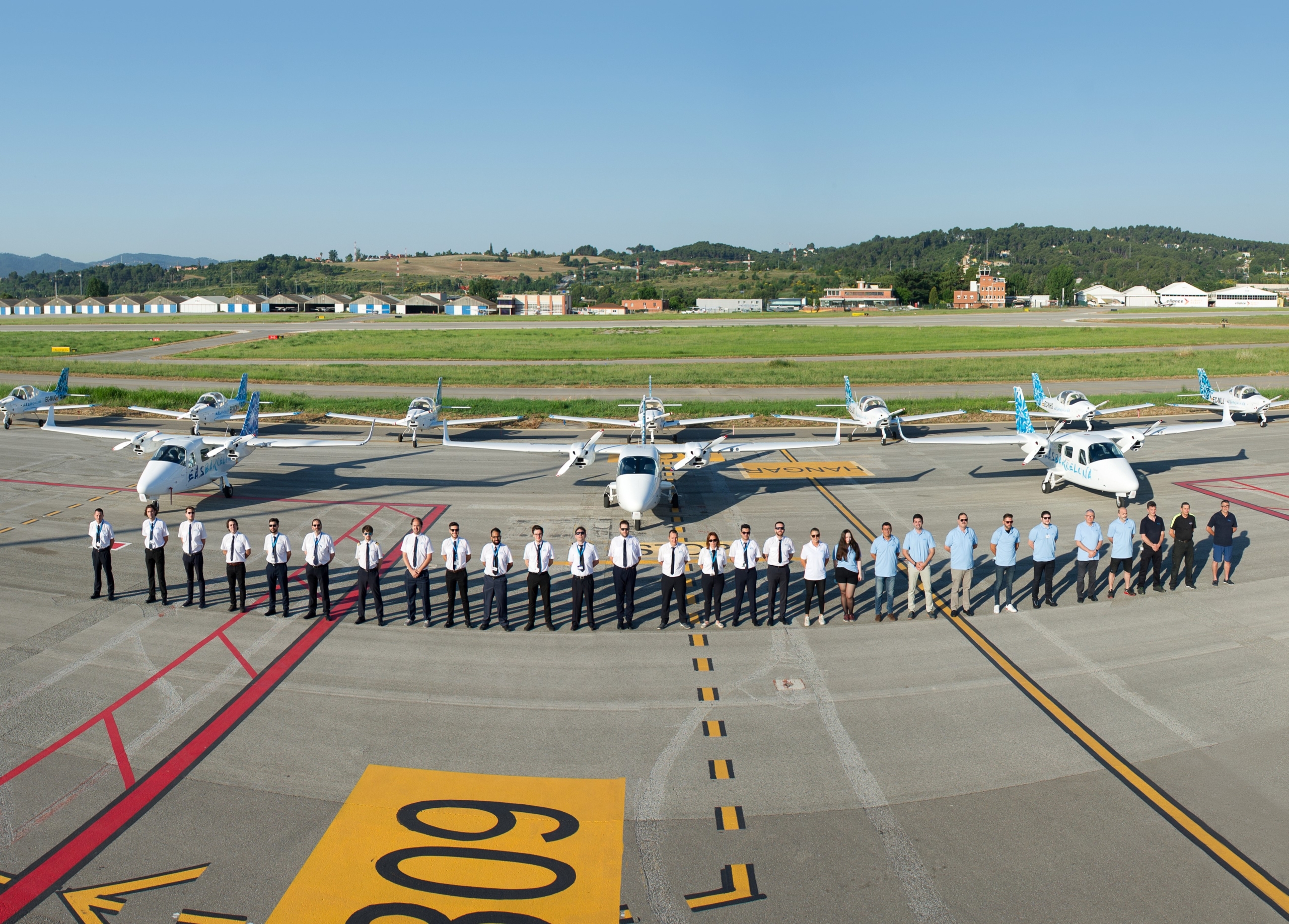On October 19, a new class of ATPL students began their journey on the path of becoming professional airplane pilots. About twenty boys and girls from a dozen different countries within and outside the European Union, aspire to carry out their professional work in “the office with the best views in the world.”
A goal that they will achieve within 18 months thanks to their personal effort and the very high quality standards provided by EAS Barcelona. Some “wings” that will lead them to practice their profession in any corner of the globe.
An important factor that is clearly beneficial for the final result of the instruction, and that is often not taken into account, although it should not be overlooked, is the varied origin of the EAS Barcelona students. This multiculturalism is one of the features that define and characterize the reference school in aeronautical training in Spain as a clearly international school.
Not in vain, since its founding by EAS Barcelona students from almost sixty different countries have passed, some as distant as Mauritius or Reunion Island, in the Indian Ocean, or as far north as Iceland, Finland or Russia. EAS Barcelona’s own academic staff brings together staff from more than half a dozen different nationalities.
Many of our students come from the Middle East or Northern Europe, from regions that are not so climate-friendly as the southern lands, with a mild climate, bathed by the Mediterranean Sea. Barcelona is, on the other hand, a cosmopolitan city par excellence where people of absolutely diverse ethnic groups and origins coexist in perfect harmony. The perfect environment to obtain optimal training as a pilot, while cultivating your own personal growth as an individual.
Such diversity provides students with an important added value to their training as professional pilots, by allowing them to come into contact with very different realities, cultures, and ways of seeing the world. The continued use both within the classroom and outside of English as a vehicular language contributes to this. English will be part of the daily life of an airline pilot in their future professional life, and at EAS Barcelona students have the opportunity to implement its use almost as naturally as staying in any Anglo-Saxon country.
Although not formally included in the study program, the collateral benefits obtained from the cultural interaction that the stay at EAS Barcelona encourages during the teaching process are extremely evident. EAS Barcelona students benefit from this kind of unexpected “Erasmus” in many aspects of their training as human beings, while at the same time expanding their level of general culture and what we colloquially call “world science”. All this at a particularly delicate moment in their lives, where these contributions are most important.
If traveling is enriching and air transport is a fundamental element in the ability of human beings to move around, training in EAS combines both criteria within its classrooms, around the backbone of their training as future professional airline pilots. A profession that is characterized precisely by its globality and internationality.
